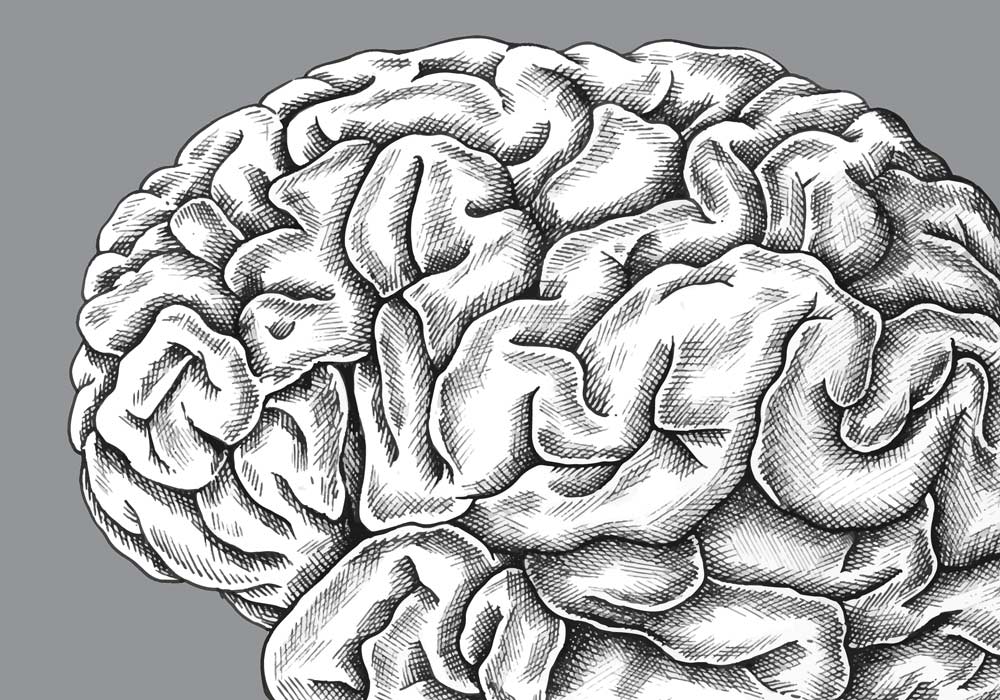When it comes to risk factors for dementia and Alzheimer’s disease, the Palmetto State
checks every
box, from high incidence of stroke and diabetes to heart disease and obesity.
To top it off, advanced age is the primary risk factor for those cognitive disorders, and more than a million South Carolinians will be 65 or older by 2030. The Centers for Disease Control estimate that 12 percent of South Carolinians older than 45 already have some degree of cognitive complaints.
In short, there could not have been a better time for the University of South Carolina
to launch the
USC Brain Health Network, a planned supportive health care network for diagnosis and
management
of cognitive issues that will be linked to USC’s new Brain Health Center in Columbia.
“Primary care doctors across the state face a daunting task in assessing patients who come in with cognitive issues and then referring them to specialists,” says Julius Fridriksson, USC’s vice president for research. “The goal of the Brain Health Network is to provide an infrastructure that leads to early detection and streamlined pathways to treatment.”
Dr. Leonardo Bonilha is a neurologist and senior associate dean of research at USC’s School of Medicine Columbia. He’s also director of the USC Brain Health Center, which will serve as the main hub in the hub-and-spoke model of the USC Brain Health Network.
“Our goal is to support the primary care doctors on the front lines by giving them the resources they need to assess and manage patients with neurological issues, with specialized assessment in Columbia for the more difficult cases,” Bonilha says.
The plan calls for establishing a network connected directly to USC School of Medicine neurologists, who will assist as needed in diagnostics and follow-up treatment.
“Primary care doctors across the state face a daunting task in assessing patients who come in with cognitive issues and then referring them to specialists. The goal of the Brain Health Network is to provide an infrastructure that leads to early detection and streamlined pathways to treatment.”
The network will also be supported by the S.C. Alzheimer’s Disease Registry, which is maintained by USC’s Arnold School of Public Health. The registry is the nation’s most comprehensive database of its kind, documenting all diagnosed cases of Alzheimer’s disease and related dementias in South Carolina since 1988.
The USC Brain Health Center is acquiring two new MRI scanners, including an ultra-high field 7 Tesla scanner, the first of its kind in South Carolina. The university’s McCausland Center for Brain Imaging will conduct MRI services for USC Brain Health Network patients who are referred to Columbia for follow-up assessment. MRI brain scans are a key tool in differentiating possible causes of cognitive impairment and revealing other neurological disorders sometimes observed in combination with dementia.
“Not all cases are purely Alzheimer’s disease pathology. We think that many dementia cases in South Carolina are worsened by vascular causes, where the prevalence of cardiovascular disease is higher,” says Fridriksson, who has led several research initiatives focused on aphasia, a common side effect of stroke. “Hardening of the arteries, diabetes, hypertension — the things associated with poor health that are really bad for the brain.”
Identifying those patients as early as possible and getting their hypertension or diabetes under control is important, he says. Novel treatments for Alzheimer’s and new medications in the pipeline bring hope for what has long been a dire diagnosis.
New immune-targeted therapies recently have shown unprecedented promise in delaying the progression of Alzheimer’s disease, according to Bonilha. That means there is potentially a better horizon in terms of treatment options for Alzheimer’s disease or other related forms of dementia.
“It’s important to consider that many of the recent findings are still novel and preliminary,” says Bonilha. “Also, the new therapies are not applicable to all cases. However, they suggest a changing landscape in therapeutic approaches, and it’s definitely an additional reason for why early detection is so important.”

